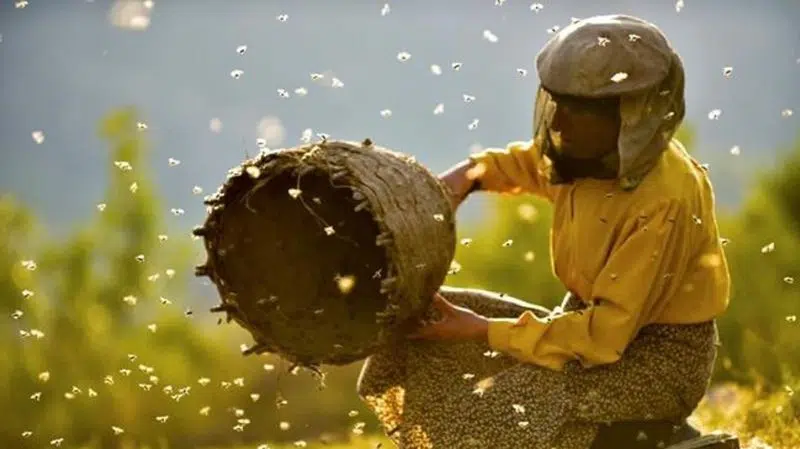
Making Oscar history, ‘Honeyland’ shatters borders
NEW YORK — Ljubomir Stefanov and Tamara Kotevska were in a hard-to-reach area of Northern Macedonia — about as far from the Oscars as possible — when they came upon the beekeeper who would be their subject in their acclaimed documentary “Honeyland.”
While working on a short video commissioned by a nature conservancy project, the filmmakers met Hatidze Muratova, a middle-aged woman who ekes out a hardscrabble and solitary existence harvesting honey with ancient, sustainable methods across the craggy mountainous landscape of the former Yugoslav republic while caring for her half-blind and bedridden mother in a modest home without electricity.
In Muratova, they recognized not just a noble, almost timeless figure of environmental symbolism but an inspiring character deserving of attention. Muratova hadn’t set out to live in near isolation; while her village dwindled, she stayed behind to care for her mother. “Honeyland” is, in a way, her liberation.
“This woman is somebody who is a true talent and a great lover of humans,” Kotevska said in an interview by phone alongside Stefanov. “She’s an extrovert. But life conditions brought her where she is. She was trapped in that life. When we showed up, it was a way of freedom for her. It was a way of expressing her life and her story to us.”


